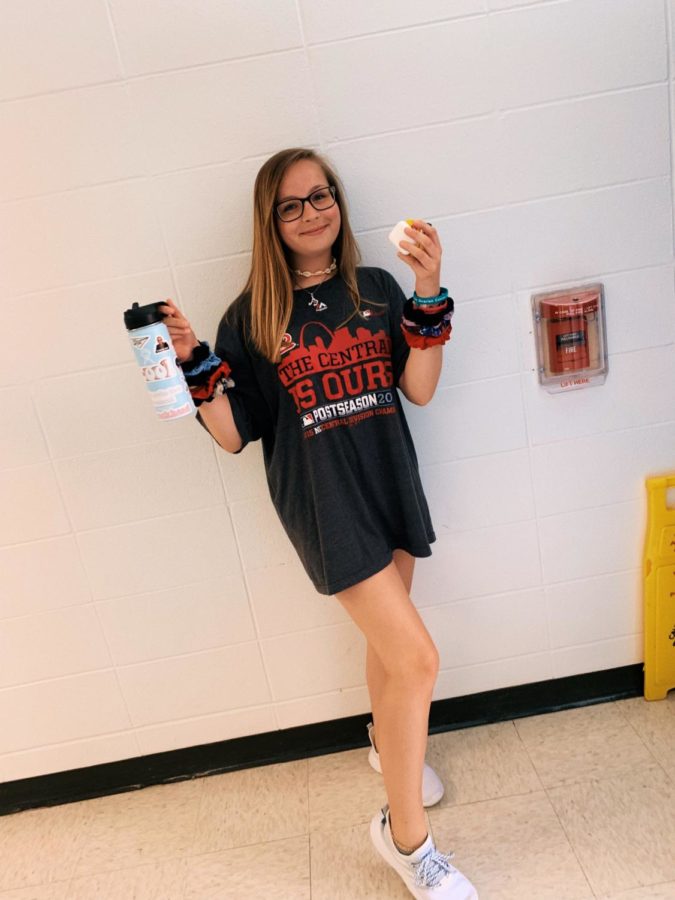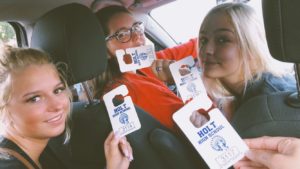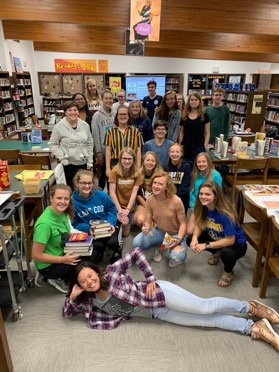High School Stereotypes
More stories from Kymberly Francis
More stories from Oriana Bonin
More stories from Rheanna Lewis
High school can be hard to maneuver for every teenager, but stereotypes can sometimes make it even harder. Most people judge others based on looks, social status, and their snap score.
Over the years, stereotypes have changed. More complex stereotypes have made their way into schools around the world.
Stereotypes are a type of assumption made based upon a generalization about a type of person. Here are some of the inaccurate high school stereotypes:
“All freshmen are stupid,” Cardier Sims (‘22) said. The incoming freshmen are seen as annoying pests that just seem to get in everybody’s way.
Some students seem to hate stereotypes. “Stereotyping is stupid,” Kayleigh Shrout (‘22) said. Stereotyping can be mean and offensive or it can be funny, even to those being stereotyped. Part of knowing how someone feels about the stereotype is putting yourself in their shoes.
For many years, we’ve had the same stereotypes haunting the schools. These same stereotypes are: jocks, band kids, cheerleaders and emos. There are so many now with the addition of new fashion trends.
The VSCO girl is a girl who owns a shell necklace, a lot of scrunchies, a Hydroflask and oversized t-shirts, usually Simply Southern. They use certain phrases to express many emotions. “And I oop,” Abby Keller (‘23) said jokingly. Keller is not a VSCO girl, but she, like everyone else, knew the phrase through memes and Tik Toks.
Sports players are sometimes characterized as “dumb jocks,” but often times, though, jocks are stereotyped as other things. Hockey, baseball, and football are the most stereotyped as more people play them. “Hockey players are toothless,” Ashley Shannon (‘20) said. In hockey, pucks can come for the face as well as hockey sticks and fists, making many players have bruises or lost teeth. It is a physical sport with poke checks and slashing.
The freshman softball players are very dedicated and love to play their sport. “Very athletic, sporty, like to get down and dirty,” Maddie Duerbeck (‘23) said.
Band kids have been stereotyped for years in high school. The usual stereotype is that all band kids are smart and are very unathletic. “They’re a bunch of geeks and are all smart,” is an unfair example that is not fair or true. Many times, band kids are busy with homework or are practicing for shows. “I’ve been stereotyped as a band kid so people don’t think I have free time,” Samantha Crouch (‘23) said.
Color guard is usually considered a part of band, but other times considered a sport. They are not often stereotyped since not many people know much about guard, but most stereotypes are jokes from the guard or things they’ve heard.
“Guard are wanna be cheerleaders,” Courtney Thake (‘21) said.
Goth kids are the kids who wear all black, have a fringe in their bangs and wear heavily applied eyeliner. They are outcasts, listen to bands like My Chemical Romance and many kids today relate to them. “Me, but they like to make out in the hallway. How can an emo person have a girlfriend and I don’t?” Jacob Dunavan (‘23) said.
The blonde stereotype has existed in and out of school for many years. The internet is riddled with dumb blonde jokes and stereotypes. “They’re (blondes) dumb,” Ally Landes (‘23) said.
With stereotyping being a part of high school life for years, it is fair to assume that many have been associated with this. So, what will it take to end this unfair stereotyping? When you judge a person, look deeper into who they really are, not what they wear or what group they are associated with. Look further to find out who they really are and do not be a part of the problem. Avoid the name-calling, the stereotyping and the judging before knowing someone.







lizzie • Feb 17, 2020 at 9:30 PM
I truely love thsi article, it really shows how people think about people.